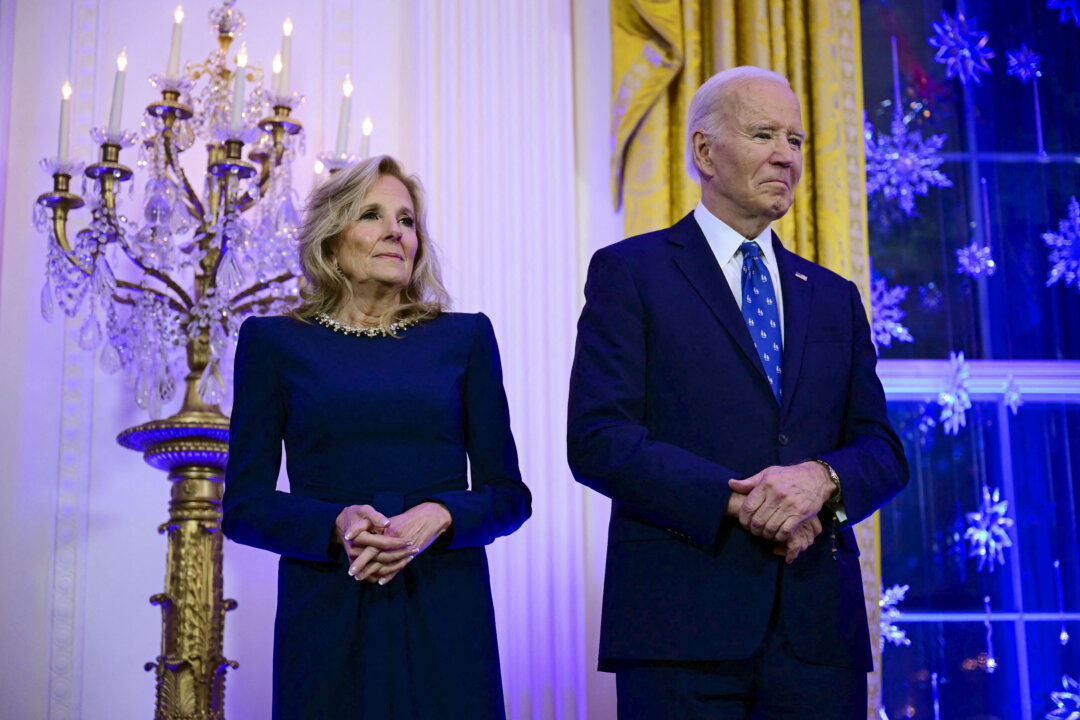

Christmas is a much-beloved holiday, celebrated by billions of people across the globe. In the U.S. alone, the Pew Research Center reports that nearly 96% of the population celebrates Christmas, including eight out of 10 non-Christians like atheists, agnostics, and those who have no faith commitment.
However, Christmas is also a uniquely Christian holiday; its core message is about a personal God taking humanity upon himself and stepping into the world to redeem sinful human beings who could never redeem themselves. The Christian message is inescapable.
Imagine a modern church seeking to replace Halloween celebrations by having a harvest festival on November 8. It wouldn't work!
I believe the love of Christmas coupled with the loathing of Christianity is one reason why atheists continue to repeat the claim that Christmas is a repurposing of a pagan Roman holiday. Two of the most popular pagan holidays put forth are the celebration of Saturnalia, which honored the Roman god Saturn, or the Dies Natalis of Sol Invictus, which is the “Birthday of the Unconquerable Sun.” Both of these celebrations were held in the second half of December, making them somewhat close to Christmas.
The claim that the roots of Christmas are pagan isn't new.
The New England Puritans, who valued work more than celebration, taught such. Increase Mather preached that “the early Christians who first observed the Nativity on December 25 did not do so thinking that ‘Christ was born in that Month, but because the Heathens Saturnalia was at that time kept in Rome, and they were willing to have those Pagan Holidays metamorphosed into Christian.’”
When one digs into the actual history, however, a much different picture arises.
There are two ways to approach the question: one is to see how December 25 became associated with the Nativity, which is how the early church would have referred to the day of Christ's birth. The other is to look at the celebrations like Saturnalia and Sol Invictus. Let’s explore both.
Looking at the history of Christmas
Much of the thrust of the “pagan Christmas” claim rests on the idea of a Christianized Rome trying to convert a populace that wouldn't want to give up its feast traditions, akin to the practice of churches celebrating a harvest festival instead of Halloween.
Yet, scholars like Yale University's T.C. Schmidt find the marking of December 25 to appear much earlier in Christian history.
When translating Hippolytus' "Commentary on Daniel," written just after 200 AD, Schmidt notes that five of the seven manuscripts contain December 25 as the date for Jesus' birth and another offers the 25 of either December or March. Clement of Alexandria in this same time offers the date of March 25 as the date of the Incarnation — that is, the conception of Jesus — in his "Stromata."
Both works assert the idea that Jesus' death would have happened on the same day as his conception.
Christmas and Easter are linked
Why the December 25 date?
As Thomas Tulley works out in his book "The Origins of the Liturgical Year," early church members believed the date of the death of Jesus would also reflect either his birth or his conception.
Augustine wrote of this, saying, “For He is believed to have been conceived on the 25th of March, upon which day also He suffered; so the womb of the Virgin, in which He was conceived, where no one of mortals was begotten, corresponds to the new grave in which He was buried, wherein was never man laid, neither before nor since. But He was born, according to tradition, upon December the 25th.”
St. John Chrysostom goes ever further, noting the Angel Gabriel's announcement of Mary's conception happened while Elizabeth was six months pregnant with John the Baptist (Luke 1:26). Chrysostom argues Zechariah's service was the Day of Atonement, thus making the conception of John the Baptist happen in the fall. Add six months and Jesus' conception lands in the spring, that is, March 25.
I don't know if this calculation is accurate, but it shows how much the early church tied the events together. The idea of randomly choosing a pagan date instead seems a pretty big stretch.
Here's the thing: If Christians were recognizing the birth of Christ by the beginning of the 3rd century AD, does it make sense to think that this was a 4th century AD invention to sway the Roman populous over to Christianity?
Christianity was gaining ground in the time of Clement, but it was by no means out from under the shadow of persecution. It also wasn't borrowing much from pagan customs at the time. So why believe they would do so for this date?
Roman time and Saturnalia
What about the year-end Roman celebration of Saturnalia, though?
When studying this holiday, one primary source is Macrobius, a Roman who lived in the 5th century AD. His "Saturnalia" provides details on the origin stories of the celebration as well as its customs.
T.C. Schmidt highlights this passage from "Saturnalia" (book 1, chapter 10), giving the dates of the celebration:
Our ancestors restricted the Saturnalia to a single day, the fourteenth before the Kalends of January, but, after Gaius Caesar had added two days to December, the day on which the festival was held became the sixteenth before the Kalends of January [January 1], with the result that, since the exact day was not commonly known — some observing the addition which Caesar had made to the calendar and others following the old usage — the festival came to be regarded as lasting for more days than one.And yet in fact among the men of old time there were some who supposed that the Saturnalia lasted for seven days ...
[But] one can infer, then, from all that has been said, that the Saturnalia lasted but one day and was held only on the fourteenth day before the Kalends of January; it was on this day alone that the shout of "Io Saturnalia" would be raised, in the temple of Saturn, at a riotous feast. Now, however, during the celebration of the Saturnalia, this day is allotted to the festival of the Opalia, although the day was first assigned to Saturn and Ops in common.
So Saturnalia was a three-day long feast that began 16 days before January 1.
Their December was 31 days long as is ours, which places Saturnalia on December 17, far too early to be mistaken for December 25. However, Macrobius notes that another celebration, Sigillaria, was celebrated after these three days. Schmidt, in his article, provides a translation of chapter 10 in its entirety, as dates are referenced throughout.
He then concludes:
Macrobius does an excellent job summarizing authorities that were available to him, most of which I think have been lost. His conclusion is quite clear, Saturnalia originally was one day and occurred on the 14th day before the Kalends January, but when Caesar altered the calendar it was extended to three days and started on the 16th, later a new Festival of Sigillaria extended the celebrations to complete seven days, meaning that the Festival ended on either the 10th or ninth day before the Kalends of January depending on how we count. Of course neither of these days fall on the eighth day before the Kalends of January, that is December 25.The dates don't fit
Remember, Macrobius was writing in the 5th century AD, and we have Christmas sermons from John Chrysostom preached on December 25 from a century earlier. Yet, the dates don't correspond.
If Christmas were created to supplant Saturnalia, the Christians would have chosen December 17. Add to that the references I noted about the December 25 date stretching all the way back to 200 AD, and you have a very real problem with Saturnalia being the origin of the date for Christmas.
Imagine a modern church seeking to replace Halloween celebrations by having a harvest festival on November 8. It wouldn't work! People could celebrate one and then attend the other. The concept of substitution would be fairly ineffective in such a case.
There is one other possibility suggested when discussing Christmas borrowing from pagan Rome: Sol Invictus — the winter solstice. You can read about why that suggestion fails as well here.
I hope this little study has encouraged you to see that sometimes historic coincidences aren’t always significant. Our assumptions can be very wrong sometimes!
You may celebrate the coming of Jesus confidently knowing this is a very Christian holiday, and let me wish you a very merry and blessed Christmas!
This article is adapted from a post that originally appeared on the Worldview Bulletin Substack.
.png)
 11 hours ago
5
11 hours ago
5















 English (US)
English (US)